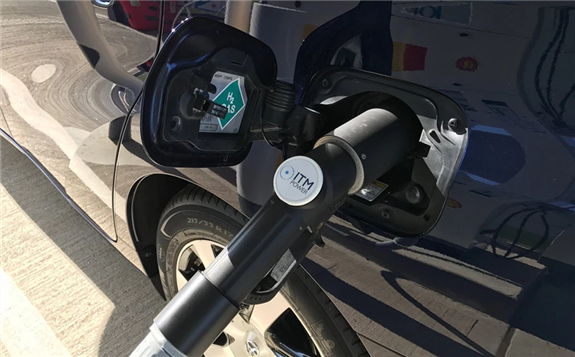Fuel cell technology has been in development since the late 1800s and hydrogen fuel cells have been around since the early 1930s. However, they have never been as widely discussed as they are today.

That's because the technology is almost at a stage where it can be employed in consumer vehicles on a mass scale, with refillable fuel cells able to drive electric motors and maintain zero emissions without needing to be replenished every 100-200 miles.
In short, it is the Holy Grail for sustainable car travel and, therefore, an ideal subject for Pocket-lint's sustainability month.
Here then is what we know about hydrogen fuel cell technology and whether it might feature in your next car.
What is hydrogen fuel cell technology?
A fuel cell is similar to a battery in some ways - it essentially provides an electrical current.
However, while a battery stores energy a fuel cell generates its own. It uses a fuel source - in this case hydrogen - which chemically reacts with the oxygen in the air to create an electrical charge. This electricity can then be used to power machinery or, in the case of consumer vehicles, either power the drivetrain directly or to top up a rechargeable battery that subsequently drives it.
And, unlike combustion alternatives, the waste products of the process are just a little heat and water (H2O). It is therefore a zero emission technology well suited to the future of clean, green travel.
Hydrogen fuel cell benefits
As well as zero emissions, hydrogen is a sustainable fuel in comparison, say, to fossil fuel alternatives. It is even ecologically friendly to produce.
Many hydrogen production plants run on solar or wind power and use electrolysis to extract it from water - seawater, even. This method has a very low carbon footprint and the gas released into the air during manufacture is simply oxygen.
The pure hydrogen produced this way is ideal for low temperature use, such as in fuel cells for cars.